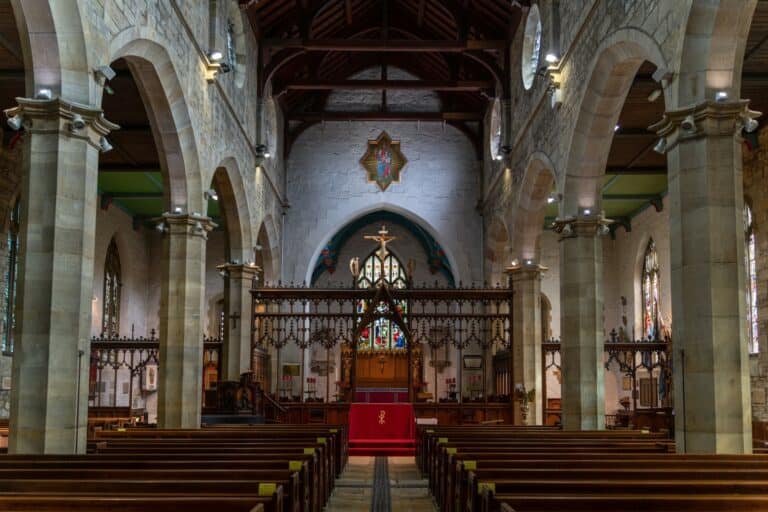Vatican training guide advises Catholic bishops that it is not their duty to report accusations of clerical child abuse
Recently released documents suggest that the Catholic Church is training bishops that it is “not necessarily” their duty to report accusations of clerical child abuse to police.
Training guide
A training document used to train newly appointed Catholic bishops advises that senior members of the clergy who are aware of allegations of sexual abuse by priests have no duty to report this to police. The training document goes on to suggest that in countries where the law does not make it mandatory to report suspected sexual abuse, bishops need only address the allegations internally.
The document states:
“According to the state of civil laws of each country where reporting is obligatory, it is not necessarily the duty of the bishop to report suspects to the authorities, the police or state prosecutors in the moment when they are made aware of crimes or sinful deeds.”
The training guide came to light earlier this month after Boston Cardinal Sean P O’Malley outlined documents used during a recent training course organised by the Congregation of bishops to train newly appointed bishop and invited feedback on how the course could be improved. The documents were first reported on by John Allen at Catholic news website. Allen states that the Vatican has been running the training course for new bishops since 2001 and that almost 30% of current Catholic bishops have participated in the course. The course was last held in September 2015.
In light of previous and ongoing clerical abuse scandals which have thoroughly tarnished the reputation of the Catholic Church, the guidance beggars belief. The Catholic Church has long been suspected of covering up sexual abuse by priests and the revelation that new bishops are being told that they only need to deal with allegations of abuse internally does nothing to increase confidence that the church is serious in its desire to eliminate clerical abuse or ensure that priests who abuse their positions are brought to justice. In continuing to deal with allegations of abuse internally, the Church prevents transparency and hides the true extent of clerical abuse. The Church must realise that it is not sufficient for allegations of this nature to be dealt with internally – allegations of clerical abuse must be reported to police so that they can be properly investigated and those who have been subjected to abuse can be adequately protected.
Denial
Shockingly, the guidelines downplay the seriousness of sexual abuse within the Church by citing statistics which suggest that children are more likely to be abused by family members and friends and neighbours than other authority figures such as priests. This serves as an unwelcome reminder that many figures within the Catholic Church remain in denial as to the extent of clerical abuse and the serious consequences it has for survivors of abuse. The Catholic Church should be serious about tackling sexual abuse by priests irrespective of how widespread abuse might be.
The training guidelines are reported to have been authored by controversial French monsignor and psychotherapist, Tony Anatrella, who serves as a consultant to the Pontifical Council for the Family. Anatrella is best known for previous statements on “gender theory” and homosexuality notably that increasing acceptance of homosexuality in Western society is a serious danger to children. In light of his views that it is not necessary for bishops to report sexual abuse by priests to police, one can only assume that he does not consider clerical abuse to be a similar danger.
Reaction
Survivors’ groups have reacted with anger to news of the training guidelines and have argued that the guidelines suggest that the Church has not radically altered its attitude or desire to eliminate sexual abuse by priests. The Survivors Network of those Abused by Priests (SNAP), a US-based advocacy group for survivors of clerical abuse, has released the following statement:
“It’s infuriating, and dangerous that so many believe the myth that bishops are changing how they deal with abuse and that so little attention is paid when evidence to the contrary emerges.”
Pontifical Commission for the Protection of Minors
Various reports on the guidelines have pointed out the surprising fact that the recently established Pontifical Commission for the Protection of Minors played no role in the development of the training programme despite being tasked with reforming policies and helping to establish “best practices” to prevent and deal with clerical abuse when it was set up by Pope Francis last year. The failure of the Commission to adopt a meaningful role in the training of bishops and senior clergy undoubtedly raises questions about the Commission’s purpose and desire to implement serious change.
The Commission has been embroiled in controversy in recent weeks with this news following hot on the heels of reports. Saunders was personally appointed to the commission by Pope Francis in 2014 to advise the Vatican on how to deal with clerical abuse.
Saunders had argued that in addition to its role in developing policies to prevent and deal with future cases of clerical abuse, the Commission should play an increased role in addressing specific previous cases of clerical abuse which have occurred throughout the world. Saunders also expressed concerns that no progress has been made in establishing a tribunal to hear cases of Church officials who have covered up clerical abuse despite this being announced last year.
Saunders stated:
“Our pope could do so much more to make things happen now. It’s incumbent on a commission appointed by him to impress on him the need to do things now, not years down the line … I don’t see movement, I don’t see action over an issue that they should be absolutely furious about.”
The Commission appears to disagree with Saunders’ stance. A spokesperson for the Commission stated that it had been decided that Saunders would take a leave of absence from his membership to consider “how best he could support the Commission’s work.”
The news leaves a bad taste in the mouth and raises further questions about the Church’s desire to address previous cases of clerical abuse and front up to its own role in allowing instances of clerical abuse to occur.
The Child Abuse team at Bolt Burdon Kemp has a long history of supporting survivors of clerical abuse and helping them to bring the Church and abusers to justice. Our solicitors have brought a large number of successful claims for compensation against the Catholic Church and various other denominations in relation to clerical abuse. Details of our past successes are available on our dedicated page.










